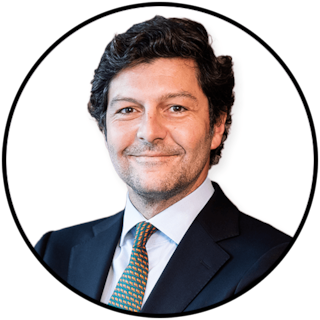The mindset shift that will improve people's retirement
André Themudo | BlackRock
Develops relationships with Spanish, Portuguese and Andorra asset managers, private and retail banks, family offices and distribution platforms. This includes the distribution of Mutual Funds, Indexing Strategies and Investment Solutions for wealth clients.
November 2024 by André Themudo
Current demographic trends jeopardize the ability of public pension systems to allow people to live a comfortable retirement. But capital markets can be the perfect tool and ally to mitigate this impact.
Larry Fink, CEO and founder of BlackRock, dedicated his letter to investors this year to the need to rethink retirement. The letter, which is considered one of the best reads in the industry, analyzes topics of great relevance to the capital markets, so the choice of retirement as the focus of this year's letter demonstrates the importance of this issue for BlackRock.
In fact, Larry Fink approached the need to rethink retirement from a very personal perspective, as he used his parents as an example of a typical American family who could have multiplied by 20 the investments made in the S&P 500 in 1960 if they had recovered them when they retired in 1990.
By analyzing his parents' legacy, the CEO of BlackRock discovered that they had organized themselves so efficiently that they could have lived to be 100 without ceasing to live comfortably, thanks to the use they made of their income while working. This is precisely one of the main messages we want to convey: current demographic trends jeopardize the ability of public pension systems to allow people to maintain their standard of living after retirement.
However, the capital markets are the perfect tool - and ally - to mitigate this impact, although it is important to stress that it is only by starting to work early enough that their effect materializes. That's why it's important to promote financial education programs that focus on the need to anticipate the age at which you start investing.
Number of women and young investors has increased
And this is where we celebrate the progress we have made in Europe. We recently published the results of our People & Money survey, which looks at key investment trends in Europe. What we found is very encouraging: the number of investors increased in practically all the countries that took part in the study, with the United Kingdom, Germany and France being the three most prominent.
Although the story is positive, some examples, such as Portugal, Italy and Finland, the only countries in the sample where the investor base has shrunk, show that there is still work to be done. But the good news is that much of this work is already underway, especially in terms of bringing segments that traditionally weren't so closely associated with it into the habit of investing, such as women and young people.
The study reveals that the percentage of women investors has risen from 26% to 29%, a particularly notable increase when compared to men, who have remained practically stable. Young people, for their part, currently represent 39% of the investor base, but their role is set to increase, as the 18-34 age group is expected to account for half of new investors over the next 12 months.
ETFs should attract many investors…
Much of this momentum is being driven by the expansion of ETFs, products that are expected to grow at a double-digit rate - in some cases, even triple-digit - across the continent. In fact, these vehicles are expected to attract more than two and a half million new investors in Europe next year, which represents almost a quarter of the total new investors that will join the industry in the period.
… but active management funds are also important in preparing for retirement.
This trend is very encouraging because ETFs are products that incorporate very long-term investment into their very nature, which is one of the most important factors when investing for retirement. In any case, it is essential to diversify portfolios, both in terms of the asset classes you invest in and the tools you use to make those investments, so active management funds also have a role to play in preparing for retirement.
These products complement the cost efficiency of ETFs very well, as they offer greater return potential, flexibility and risk management, which makes it possible to build very long-term portfolios that respond to the problem that Larry Fink pointed out in his letter: many people don't enjoy financial stability in their retirement when they generated enough income during their working life to avoid this situation.


